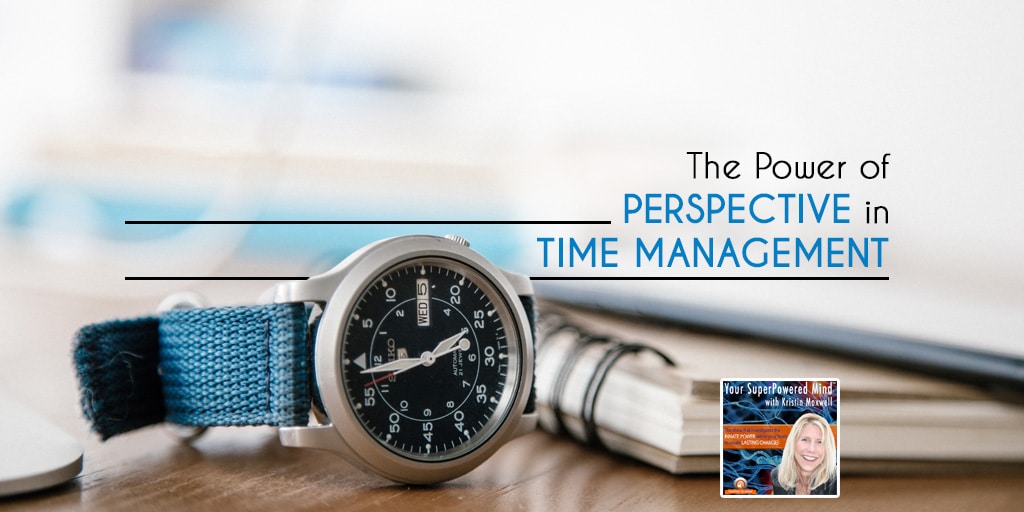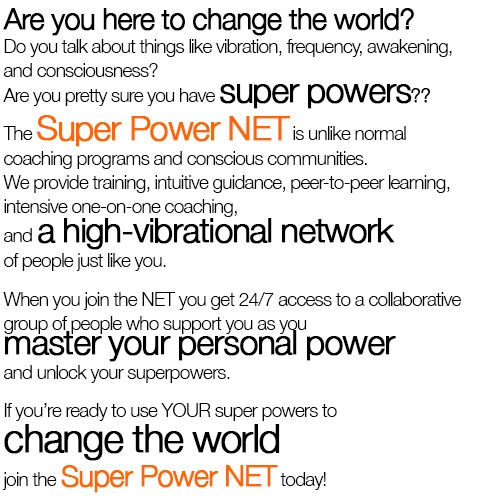
Hi everyone. Welcome to Your SuperPowered Mind. I am your host, Kristin Maxwell, and in the show we explore the process of transformation and give you tools and strategies you can use to transform your own mind. Today, we’re exploring a topic that is going to interest everyone. Productivity and time. Our guest today is Penny Zenker, and we’re going to be talking about the power of perspective and time management.
Penny Zenker, she is an international speaker, a business strategy coach, and bestselling author. She has a fascinating background. She’s developed and sold a multimillion dollar business and has acted as Tony Robbins’ strategic business coach. Now, Penny is one of America’s leading experts in the psychology of productivity teaching people how to eliminate distraction and manage time to gain balance and fulfillment in their lives.
Penny, welcome to Your SuperPowered Mind.
Thanks Kristin. It’s great to be here!
I want to dive right in with my first question which is what superpower did you undercover as a result of mastering your mind?
Well, recently I actually discovered it about a year ago. I mean, I’ve been building it, my superpower, and I’ll tell you what it is, but I think it’s interesting that when we look back, when we finally realize what it is we can see the puzzle pieces and how they come together and how that became your superpower. I just recently had to pick it apart as well to understand what were the dimensions of it.

My superpower is maintaining perspective.
But my superpower, you mentioned it in the intro, is maintaining perspective. It’s perspective. Whenever we think of what our superpower might be, does everybody else see what a huge superpower it is? And maybe they don’t. But the power of perspective has been life changing for me, and I know that every client that I work with and every audience that I talk to, they get it. They get it, and I’d love to tell you more about it, and I want to leave you open for kind of questions. But that is the superpower, which is the power of perspective.
That sounds amazing. And yes, would you tell us a little bit more? What do you mean by perspective? How do you use it? And how has it changed your life? That’s a whole series of questions right there.
Yeah, right there!
Right there.
I like to use, and the way I describe it, and then we can see the impact it has, is if we take a Rubik’s cube, and everybody can go out and buy a Rubik’s cube and put it on their desk so that they can have a reminder of the power of perspective. And if you were to look at that, my perspective is only one of the colors of the side sides, right?
And when we’re stressed out, we only see our perspective, and our failure to see, then we might see things worse than they are or better than they are, but were not really seeing how it is in the big picture. And also we’re also not accepting what’s going on with us very often. It’s where we might be in a place of blame of criticism and when we can open up and see the big picture and take in the different perspectives, which would be all the sides of the cube.
Then and only then do we really gain true perspective. When I’m missing perspective then I think about how do I open up my perspective? What am I not seeing? What other sides do I need to consider? I kind of look at also as the ABCs of perspective.
Mel Robbins had the 54321, right, to get you into action?
Yes.

I take a step back and I take a look at the big picture.
Well in this case it would be the ABC. A being my position. Whatever I’m experiencing I can see my position, but then I can take the opposing party. If I’m in a conflict or I’m looking at a client or I’m talking to one of my kids. This could be in any context of our life. Then I get to step into their shoes for a moment. That’s the B. And look into their perspective. And maybe there’s other perspectives as well, and that’s where the C comes in is the rest of the Rubik’s cube. It’s understanding what are all the other elements that are a part of this? If I’m talking to a client, it might be market expectations. It might be competition, right? There might be other aspects that I need to take a step back and see what I’m not seeing. See what I’m missing. What both parties might be missing if we’re talking about a conflict or an interaction.
And so that has changed my life in that its emotional intelligence. I mean, this is the key to emotional intelligence because instead of getting angry or upset at a particular situation, I take a step back and I take a look at the big picture. I accept and own my position, and then I get to say, “Okay, let’s look at the other aspects and dimensions of this before I decide what it means.” I’ve been in really difficult business negotiations and a partner that wasn’t delivering what was agreed, and I needed an end result and it was part of a much bigger company that I was a part of, and this was a delivery for our biggest and most important client and had that failed our company could actually have been affected and gone down as a result of it because it was a very, very large deal.
And this supplier, I could have gotten angry with them and that could have ruined our relationship, so I had to take a step back and maintain this perspective and see how I could, keeping the big picture, the result in mind, how could I better communicate with them understanding what their position might be and not being too focused on mine? That’s just one example.
Right.
I have examples with my kids and examples with every area of my life how its just created greater emotional intelligence.
That is really a great visual. I mean, it’s really, really does stick with you the idea of okay, I’ve got one side of colors and okay where are the other colors? And that’s where sometimes it is so hard to remember to zoom out.
And you know what I’m going to do? We have to take a break, and I want to go deeper into what you were saying, so let’s break now. But before we do, can you tell listeners where they can learn more about you and your work?
Yeah, absolutely. They can go to the website p10app.com, and they can find out more information about my programs and different aspects of what I’m doing. I also have a blog, and you can post this stuff on the show notes and everything. I have a blog called, “Tug of War with Time” as well.
Oh, great. Thank you.
We’re going to take a break now. We have been talking to Penny Zenker about the power of perspective and time management, and when we come back, we’re going to go a bit deeper into how do we actually own and accept our own position and those of the people around us.
To listen to the entire show click on the player above or go to the SuperPower Up! podcast on iTunes.
Podcast: Play in new window


